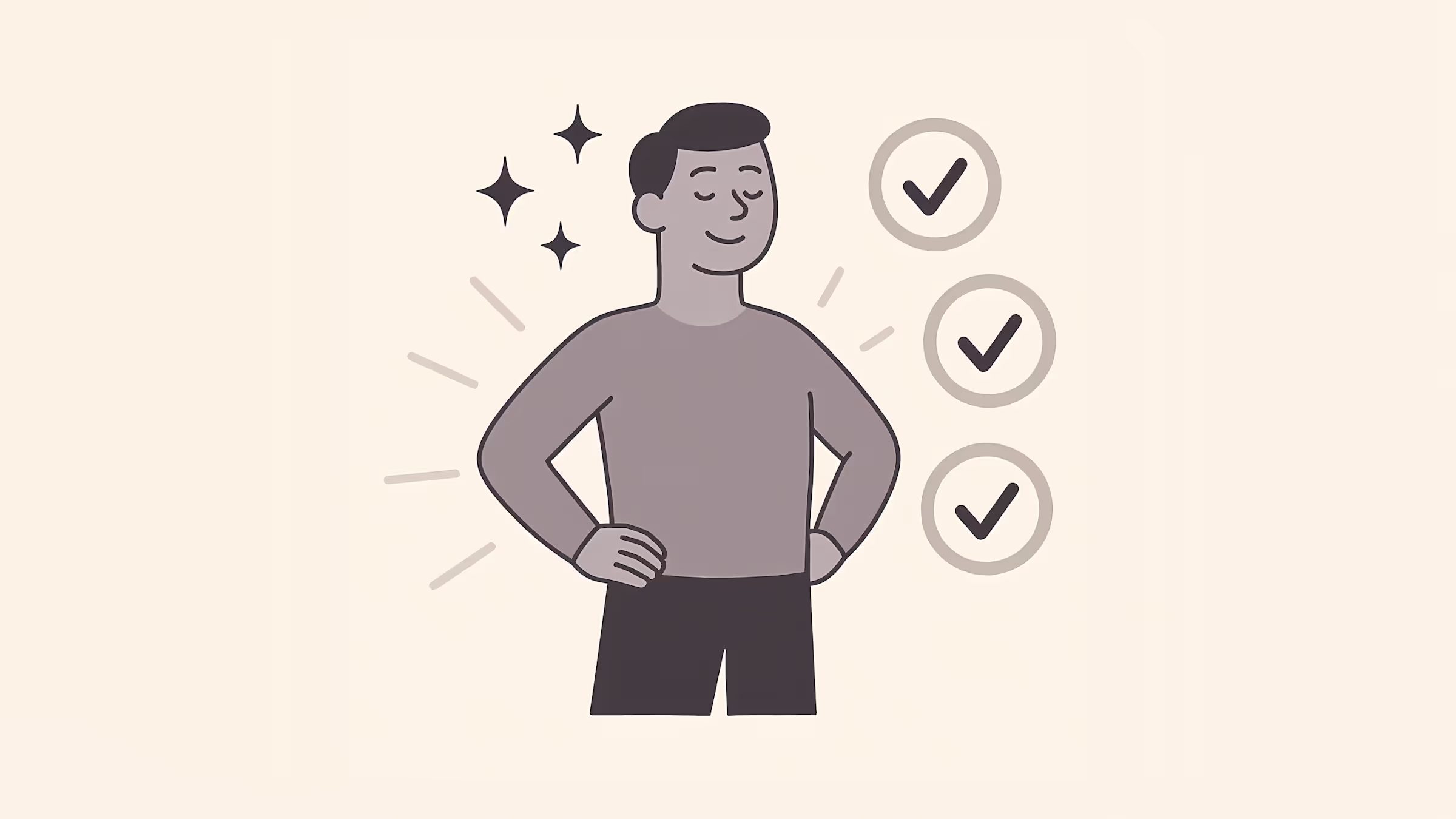What Is High-Ticket Sales? Definition, Strategy, and Examples

Selling items with a high price tag, often called high-ticket sales, is a specific way businesses approach customers. It's not about selling a lot of cheap things; it's about selling fewer, more expensive things that offer a lot of value. Think of it like selling a custom-built computer versus a basic model. This approach requires a different kind of conversation and relationship building. We'll look at what makes these sales work and how companies use them.
Key Takeaways
- High-ticket sales involve selling products or services with a significant price, usually over $1,000.
- This sales method focuses on quality, exclusivity, and providing substantial value to customers.
- Unlike low-ticket sales that rely on volume, high-ticket sales aim for fewer, larger transactions.
- Developing a successful high-ticket sales strategy requires understanding customer needs and building trust.
- Examples include enterprise software, luxury real estate, and specialized consulting services.
Understanding High-Ticket Sales
High-ticket sales involve the exchange of products or services that carry a substantial price tag. Unlike transactions focused on volume, these sales center on significant investments, often exceeding $1,000, where customers expect a higher degree of quality and personalized attention. This approach is particularly suited for businesses offering unique, premium solutions that address specific, high-value needs for their clientele.
Defining High-Ticket Sales
High-ticket sales refer to the process of selling products or services that command a premium price. While the exact monetary threshold can differ by industry, these transactions represent a considerable financial commitment for the buyer. They are characterized by a focus on exclusivity, superior quality, and a more involved customer journey. This contrasts with low-ticket sales, which typically involve lower price points and higher transaction volumes.
The Value Proposition of Premium Offerings
Businesses engaging in high-ticket sales must clearly articulate the exceptional value their products or services provide. Customers investing significant amounts are seeking solutions that offer transformative results, unique benefits, or a distinct advantage. The value proposition needs to go beyond basic features, highlighting how the offering solves complex problems, enhances status, or delivers unparalleled outcomes. This often involves demonstrating a deep understanding of the client's specific challenges and presenting the product or service as the definitive solution.
Distinguishing High-Ticket from Low-Ticket Transactions
Several key differences set high-ticket sales apart from their low-ticket counterparts:
- Price Point: High-ticket items have a significantly higher price, often starting at $1,000 or more, whereas low-ticket items are more affordable and impulse-driven.
- Customer Focus: High-ticket sales target a more discerning clientele willing to invest in premium solutions, while low-ticket sales aim for a broader market.
- Sales Process: High-ticket transactions typically involve longer sales cycles, more consultation, and relationship-building, whereas low-ticket sales are often quicker and more transactional.
- Value Emphasis: The focus in high-ticket sales is on the profound value and transformation delivered, while low-ticket sales often compete on price or convenience.
The success of high-ticket sales hinges on building strong relationships and demonstrating clear, tangible value that justifies the significant investment. It's about solving a major problem or fulfilling a significant desire for the customer.
For instance, digital creators often find that focusing on high-ticket sales can provide the revenue needed to sustain and grow their ventures. Many have found success by adopting this model, as seen with individuals like Danielle Leslie, who has built a business around premium coaching programs.
Key Characteristics of High-Ticket Sales
High-ticket sales are characterized by a few distinct traits that set them apart from everyday transactions. These aren't your quick, impulse buys; they involve a more considered approach from both the seller and the buyer.
Significant Investment Thresholds
First off, there's the price. High-ticket items or services represent a substantial financial commitment. While the exact number can shift depending on the industry, we're generally talking about sales that start in the thousands of dollars and can go much, much higher. Think custom business software, luxury vehicles, or high-level consulting packages. This high price point means buyers aren't just looking for a product; they're looking for a solution that offers significant return or fulfillment.
Focus on Exclusivity and Premium Quality
Another key aspect is the emphasis on exclusivity and top-tier quality. These aren't mass-produced goods. They are often unique, bespoke, or represent the pinnacle of what a particular industry offers. Buyers are paying for more than just the item itself; they're paying for the craftsmanship, the specialized knowledge, the unique experience, or the status that comes with owning something premium. This perceived value is what justifies the higher cost.
Extended Sales Cycles and Consultative Approaches
Because the investment is so large, the sales process for high-ticket items is rarely a one-and-done conversation. It typically involves a longer sales cycle. This period allows for building trust, understanding the client's specific needs in detail, and demonstrating how the product or service directly addresses those needs. It's more of a consultative process, where the seller acts as an advisor, guiding the buyer through the decision-making journey. This often involves multiple touchpoints, detailed proposals, and sometimes even negotiations.
The extended sales cycle in high-ticket transactions is not a bug; it's a feature. It allows for the necessary relationship building and problem-solving that justifies a significant investment.
Strategic Advantages of High-Ticket Sales

Selling high-value items brings some distinct benefits that can really change how a business operates. It's not just about making more money, though that's a big part of it. Think about it: each sale brings in a larger chunk of revenue. This means you can hit your financial targets with fewer deals. For instance, selling a $20,000 software package once can bring in more profit than selling hundreds of cheaper items.
Plus, when someone invests a lot, they expect more attention. This gives you a chance to really get to know their needs and build a strong connection. These deeper relationships often lead to repeat business and referrals. It's also common to offer related products or services after a big sale, which can boost revenue even more. This approach helps you avoid the constant pressure of finding new customers.
Another point is that fewer businesses focus on high-ticket sales. This means less competition for you. When there aren't as many players, you can stand out more easily by offering better value and becoming known for quality. In these markets, customers care more about the results and service than just the price. This lets you position your product as a premium choice.
Selling expensive items also builds up your brand's image. High-ticket products are usually seen as high quality and exclusive. This tells potential buyers that your brand is reliable and can provide great results. It sets you apart from companies that compete on price alone. When important clients use your solutions, it shows you deliver impactful results, which builds your reputation and makes future sales easier. It's a way to establish yourself as a leader in your field. You can find more about high-ticket digital marketing strategies to help with this.
High-ticket sales can lead to stronger brand perception and fewer competitors, allowing businesses to focus on value and quality rather than price wars.
Real-World High-Ticket Sales Examples
High-ticket sales are prevalent across many sectors, involving products and services with substantial price tags. These aren't your everyday purchases; they represent significant investments for buyers, often requiring a more involved sales process. Let's look at some common areas where these types of sales happen.
Enterprise Software Solutions
Companies that provide large-scale software for businesses, like customer relationship management (CRM) systems, often operate in the high-ticket space. A business might invest hundreds of thousands of dollars annually for a system tailored to its specific needs, including custom features and ongoing support. The sales process here involves detailed discussions to understand the client's operations and demonstrate how the software can improve efficiency or customer service. SalesCaptain, for instance, has helped businesses generate leads for such solutions.
Luxury Real Estate Market
When we talk about high-end homes, like those valued in the millions, we're definitely in high-ticket territory. Selling these properties involves a personal touch, focusing on the unique aspects and exclusivity of the estate. Agents often arrange private viewings and spend considerable time with potential buyers to build trust and highlight the property's long-term worth.
Consulting and Business Advisory Services
Major consulting firms often sell their strategic advice and problem-solving services to large corporations. Projects can cost hundreds of thousands, or even millions, depending on the complexity. The sales approach here is very consultative, emphasizing the firm's track record and the potential return on investment for the client's business.
High-End Medical Equipment
Think about specialized medical devices or diagnostic machines used in hospitals or large clinics. These items represent a significant capital expenditure for healthcare providers. The sales cycle involves technical demonstrations, discussions about patient outcomes, and often, extensive negotiations regarding service agreements and financing. The value is tied directly to patient care and operational capacity.
Developing a High-Ticket Sales Strategy
Developing a solid strategy is key to succeeding in high-ticket sales. It's not just about having a good product; it's about how you present it, price it, and connect with the people who need it most. Think of it as building a bridge to your ideal customer, making sure every step is carefully planned.
Creating Premium-Quality Products
First off, you absolutely need a product or service that stands out and justifies its price tag. This means it has to be top-notch, offering something truly unique or solving a big problem for your clients. If you're selling something like advanced business software, it should have features that go way beyond the basics – maybe better security, custom connections, or really good support. People paying more expect more, so make sure your product delivers.
Implementing Value-Based Pricing
Pricing is a big deal in high-ticket sales. Instead of just looking at how much it costs you to make or deliver something, you need to price it based on the actual value it brings to the customer. This is called value-based pricing. For example, if your software can save a company a ton of time on manual tasks, you should price it based on those savings and the potential for more income it creates, not just your development expenses. When your price matches the value, customers see it as a smart investment.
Mastering Consultative Selling Techniques
High-ticket sales often involve complex solutions, so your sales approach needs to be more like a conversation than a pitch. You need to really understand what problems your potential clients are facing. Instead of just listing features, focus on how your product or service will help them. For instance, with software, don't just talk about the tech specs; explain how it will help them make more money, save time, or grow their business. Building trust and showing you understand their situation is what consultative selling is all about. It's about helping them find the right solution, not just pushing a product. Learning how to master high-ticket sales closing by employing personalized strategies and ROI-driven messaging is a good way to go about it.
The sales process for high-ticket items is usually longer. It requires building strong relationships and demonstrating clear value over time. Patience and consistent communication are vital.
Cultivating High-Ticket Client Relationships

Building strong connections with clients is key when you're dealing with high-ticket sales. It's not just about making a sale; it's about creating a relationship that lasts. Think of it like this: you're not just selling a product or service, you're offering a significant solution to a big problem or a way to achieve a major goal. Because the investment is so large, people want to feel confident and sure about their decision.
Understanding Customer Needs and Pain Points
First things first, you really need to know who you're talking to. What keeps them up at night? What are they trying to achieve in their business or personal life? Generic pitches just don't cut it here. You have to do your homework. This means looking into their industry, their company, and even their personal background if it's relevant.
- Research their industry trends: What's happening that might affect them?
- Analyze their company's goals: What are they publicly stating they want to achieve?
- Identify their specific challenges: What problems are they facing that your solution can fix?
It’s about showing them you’ve put in the effort to understand their world before you even start talking about your solution. This initial step builds a foundation of respect.
Building Trust and Rapport
Once you get a handle on their needs, the next step is building that trust. People buy from people they like and trust, especially when spending a lot of money. This isn't built overnight. It comes from consistent, honest communication and showing genuine interest in their success.
- Be transparent: Don't hide information or make promises you can't keep.
- Listen more than you talk: Ask good questions and really pay attention to the answers.
- Share relevant insights: Offer helpful information or resources that relate to their situation, even if it doesn't directly lead to a sale right away.
Delivering Exceptional Customer Service
Even after the sale is made, the relationship doesn't end. In fact, it's just beginning. High-ticket clients expect top-notch service throughout the entire process, from the initial contact to long after they've made their purchase. This is where you can really set yourself apart.
- Proactive communication: Keep them updated on progress and any potential issues.
- Personalized follow-ups: Check in regularly to see how things are going and if their needs have changed.
- Go the extra mile: Offer support or solutions that they weren't expecting but that add significant value.
Wrapping Up High-Ticket Sales
So, we've looked at what high-ticket sales really mean. It's about selling those pricier items or services, the ones that cost a good bit more than your average buy. Think big software deals for companies, fancy houses, or expert advice for businesses. It’s not just about the price tag, though. It’s about the value, the personal touch, and building a relationship with the buyer. Unlike selling lots of cheaper things, this is more about quality over quantity. You’re not just making a sale; you’re providing a solution that’s worth the investment for a specific customer. It takes a different kind of approach, focusing on understanding needs and showing how your product or service can truly help. It’s a way to build a strong business by focusing on those bigger, more meaningful transactions.
Frequently Asked Questions
What exactly are high-ticket sales?
High-ticket sales involve selling items or services that cost a lot of money, usually over $1,000. Think of things like fancy cars, big software systems for companies, or special advice from experts. These are different from everyday items because they cost much more.
How are high-ticket sales different from selling cheaper items?
The main difference is the price. Low-ticket sales are for cheaper items bought quickly by many people. High-ticket sales are for expensive items that require more thought, a longer time to decide, and a special connection between the seller and buyer. It's about quality and value, not just selling a lot.
Why do businesses prefer selling high-ticket items?
Businesses like selling high-ticket items because they can make a lot of money from just a few sales. This means they don't have to sell as much to reach their goals. It also helps make their brand seem more special and high-quality, and they can offer more things to the same customers later on.
Can you give some examples of high-ticket sales?
Some common examples include big computer programs for companies (like Salesforce), expensive houses or apartments, expert advice from business consultants (like McKinsey), and special medical machines. Even things like private jets or custom jewelry can be high-ticket.
How can someone become good at selling high-ticket items?
To be good at selling expensive things, you need to really understand what the customer needs and wants. You have to build trust by talking to them a lot, showing them the real value, and being helpful. It’s more like being a helpful advisor than just a salesperson.
Is building relationships important in high-ticket sales?
Yes, building a strong relationship with customers is super important. Since these sales involve a lot of money and time, customers want to feel valued and understood. Giving great service and staying in touch helps them feel confident in their big purchase and makes them want to buy again.

.avif)


.avif)

.avif)
.avif)
.svg)

